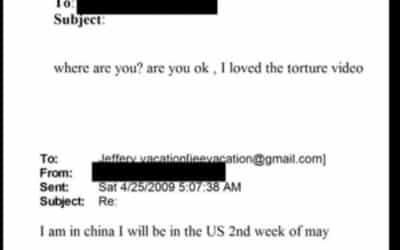I note with great sadness the passing of my friend and former colleague Walter Grinder on Dec. 4. He was 84. Walter may be the most important libertarian that most libertarians have never heard of.
Although he made important contributions to the literature of liberty (such as his work with John Hagel on the far-reaching destructive effects of state intervention in money and banking and his introduction to Albert Jay Nock’s classic, Our Enemy the State), he devoted his professional activities primarily to keeping libertarian scholars and writers informed about a wide range of literature relevant to understanding liberty. His interests covered the broadest range of disciplines, including history, political philosophy, and economics. He also helped to advance the intellectual careers of many libertarian students by putting them in contact with established academics who had similar research interests. Thus he helped the students navigate the treacherous graduate-school waters in which advocates of individualism and free markets can be at a disadvantage. In the process, he himself mentored countless students who have gone on to become accomplished professors and public intellectuals.
Over many years he did this largely unseen work at the Institute for Humane Studies, where I worked in the late 1980s. For me, one of the great joys of that job was being able to talk with Walter regularly. He was so well-read and was always so reasonable that I wouldn’t have thought to undertake a writing project without talking to him first. Like his friend and colleague Leonard Liggio, he was a walking multidisciplinary bibliography. I met Walter more than a decade earlier at one of the first conferences of the old Center for Libertarian Studies. Then in 1978 I attended a Cato Institute summer seminar at which he lectured on central banking and other topics. Those lucid, erudite, and passionate lectures helped inspire my decision to leave newspaper reporting and become a full-time libertarian writer.
Unfortunately, Walter had long been plagued by bad health, but when he finally retired from IHS, he kept up his breakneck pace of looking out for and assimilating new and old important works relevant to liberty and making them known to his large email list of scholars, authors, and other liberty enthusiasts. He helped each of those individuals (me included) immensely. Despite his physical impediments, Walter’s optimism and determination never seemed to diminish, I often wondered how he possibly kept at it.
Walter will be missed by the many, many people he helped and inspired. He will be missed not only because of what and whom he knew but also because of who he was: a thoroughly decent, kind, and good-natured family man. He profoundly affected all who knew him at that level. He was a pleasure to be around.
My heartfelt condolences to the Grinder family, which includes grandchildren.
For more on Walter Grinder, see Alberto Mingardi’s appreciation. For Walter’s perspective on subjectivism in economics, I recommend his introduction to the collection he edited of Ludwig Lachmann’s writings, Capital, Expectations, and the Market Process.































